Hot Flushes
How to submit an article:
- Registered users can submit any published journal article that has a unique DOI (Digital Object Identifier) name or link to Research Hub.
- For example, you can paste the full DOI link:
https://doi.org/10.1109/5.771073or just the DOI name:10.1109/5.771073into the field above and click submit. - The person who is first to submit a valid article to Research Hub will forever be credited for it, and every article submission earns you +6 Research Points.
Also known as: Hot Flash
Related Topics
Published research studies are articles that present the findings of original research that has undergone a peer-review process and has been made publicly available in scholarly journals, books or other media.

A dietary intervention for postmenopausal hot flashes: A potential role of gut microbiome. An exploratory analysis
2023 Dec Complementary Therapies in Medicine Kahleova H, Holtz DN, Strom N, La Reau A, Kolipaka S, Schmidt N, et al.
Randomised Controlled Trial Hot Flushes Plant-Based Diet Low Fat Diet Gut Microbiota SoybeanChanges in gut microbiome associated with a low-fat, vegan diet and cooked soybeans may reduce the frequency and severity of postmenopausal hot flashes.

Pomegranate effects on the health aspects of women during peri‐ and postmenopause: A systematic review and meta‐analysis
2023 Nov 06 Phytotherapy Research Moeini R, Shirafkan H, Gorji N
Systematic Review Women's Health Menopause Pomegranate Hot FlushesPomegranate can significantly enhance women's health during and after menopause by reducing hot flashes severity and other menopause symptoms.
Benefits of Soybean in the Era of Precision Medicine: A Review of Clinical Evidence
2023 Aug 28 Journal of Microbiology and Biotechnology Kang JH, Dong Z, Shin SH
Review Article Osteoporosis Soybean Breast Cancer Hot Flushes Type 2 DiabetesSoybean intake can potentially reduce risks of several cancers, type 2 diabetes, osteoporosis, and hot flashes, and it may negatively impact some drug treatments and cause allergies.
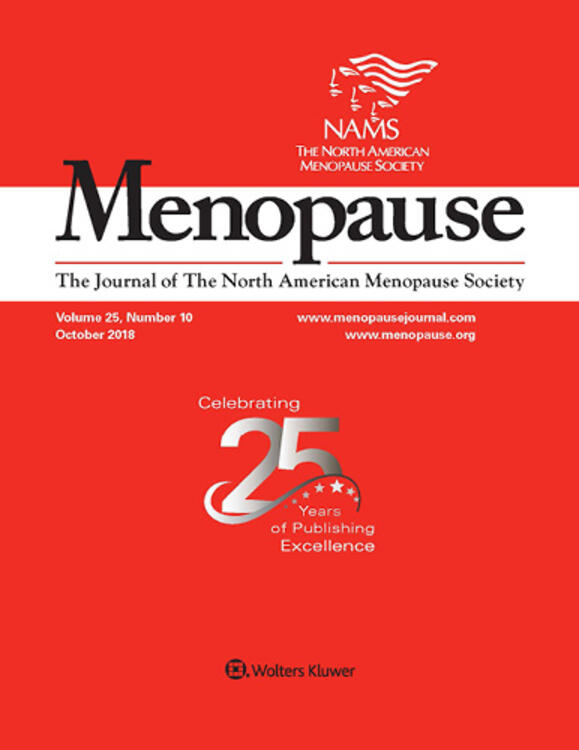
A dietary intervention for vasomotor symptoms of menopause: a randomized, controlled trial
2022 Oct 16 Menopause Barnard ND, Kahleova H, Holtz DN, Znayenko-Miller T, Sutton M, Holubkov R, et al.
Randomised Controlled Trial Plant-Based Diet Hot Flushes Menopause Low Fat Diet SoybeanA diet low in fat, vegan, and inclusive of daily cooked soybeans significantly reduces the frequency and severity of hot flashes in postmenopausal women.
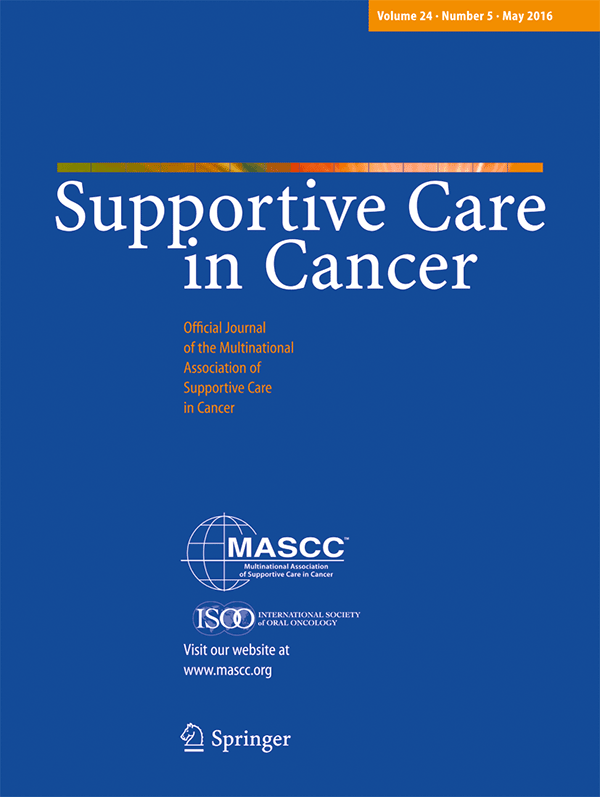
Acupuncture in the real world: evaluating a 15-year NADA auricular acupuncture service for breast cancer survivors experiencing hot flushes and night sweats as a consequence of adjuvant hormonal therapies
2022 Feb 26 Supportive Care in Cancer de Valois B, Young T, Thorpe P, Degun T, Corbishley K
This first analysis of a long-term auricular acupuncture service compares favourably with outcomes of other studies for reducing hot flushes and night sweats (HFNS) frequency and associated menopausal symptoms. In day-to-day clinical practice, National Acupuncture Detoxification Association (NADA) appears to be a safe effective intervention for breast cancer survivors.
Ear AcupunctureResearch insights are moderated by the Research Hub team and offer an at-a-glance overview of interesting research findings.

2023 Complementary Therapies in Medicine
Changes in gut microbiome associated with a low-fat, vegan diet and cooked soybeans may reduce the frequency and severity of postmenopausal hot flashes.
Randomised Controlled Trial Gut Microbiota Low Fat Diet Plant-Based Diet Soybean
A dietary intervention for postmenopausal hot flashes: A potential role of gut microbiome. An exploratory analysis
Kahleova H, Holtz DN, Strom N, La Reau A, Kolipaka S, Schmidt N, et al.

2023 Phytotherapy Research
Pomegranate can significantly enhance women's health during and after menopause by reducing hot flashes severity and other menopause symptoms.
Systematic Review Menopause Pomegranate Women's Health
Pomegranate effects on the health aspects of women during peri‐ and postmenopause: A systematic review and meta‐analysis
Moeini R, Shirafkan H, Gorji N
2023 Journal of Microbiology and Biotechnology
Soybean intake can potentially reduce risks of several cancers, type 2 diabetes, osteoporosis, and hot flashes, and it may negatively impact some drug treatments and cause allergies.
Review Article Breast Cancer Osteoporosis Soybean Type 2 Diabetes
Benefits of Soybean in the Era of Precision Medicine: A Review of Clinical Evidence
Kang JH, Dong Z, Shin SH

2022 Menopause
A diet low in fat, vegan, and inclusive of daily cooked soybeans significantly reduces the frequency and severity of hot flashes in postmenopausal women.
Randomised Controlled Trial Low Fat Diet Menopause Plant-Based Diet Soybean
A dietary intervention for vasomotor symptoms of menopause: a randomized, controlled trial
Barnard ND, Kahleova H, Holtz DN, Znayenko-Miller T, Sutton M, Holubkov R, et al.

2021 Acupuncture in Medicine
Acupuncture's potential in reducing menopausal hot flush frequency compared to sham acupuncture, and its similarity in impacting hormone levels to hormone therapy.
Systematic Review Menopause
Effect of acupuncture on menopausal hot flushes and serum hormone levels: a systematic review and meta-analysis
Liu C, Wang Z, Guo T, Zhuang L, Gao X
Review Articles
Review articles summarise and critically evaluate the current state of research on a specific topic or field by synthesising multiple primary research studies.

Pomegranate effects on the health aspects of women during peri‐ and postmenopause: A systematic review and meta‐analysis
2023 Nov 06 Phytotherapy Research Moeini R, Shirafkan H, Gorji N
Systematic Review Women's Health Menopause Pomegranate Hot FlushesPomegranate can significantly enhance women's health during and after menopause by reducing hot flashes severity and other menopause symptoms.
Benefits of Soybean in the Era of Precision Medicine: A Review of Clinical Evidence
2023 Aug 28 Journal of Microbiology and Biotechnology Kang JH, Dong Z, Shin SH
Review Article Osteoporosis Soybean Breast Cancer Hot Flushes Type 2 DiabetesSoybean intake can potentially reduce risks of several cancers, type 2 diabetes, osteoporosis, and hot flashes, and it may negatively impact some drug treatments and cause allergies.

Effect of acupuncture on menopausal hot flushes and serum hormone levels: a systematic review and meta-analysis
2021 Dec 13 Acupuncture in Medicine Liu C, Wang Z, Guo T, Zhuang L, Gao X
Systematic Review Meta-Analysis MenopauseAcupuncture's potential in reducing menopausal hot flush frequency compared to sham acupuncture, and its similarity in impacting hormone levels to hormone therapy.
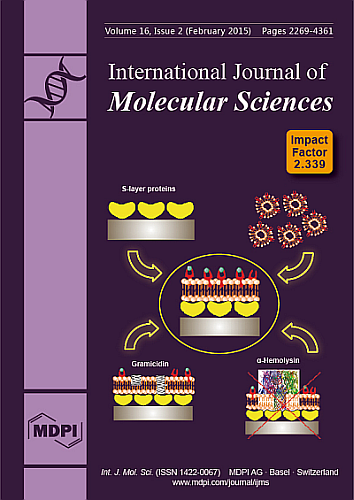
Utilization of Isoflavones in Soybeans for Women with Menopausal Syndrome: An Overview
2021 Mar 22 International Journal of Molecular Sciences Chen LR, Chen KH
Systematic Review Review Article Osteoporosis Hot Flushes Soybean High Blood Pressure MenopauseIsoflavones found in soybeans can reduce risks of certain cancers and alleviate menopause-related symptoms among women, such as vasomotor syndromes, spinal bone loss, and hypertension.

Scientific Evidence Supporting the Beneficial Effects of Isoflavones on Human Health
2020 Dec 17 Nutrients Gómez-Zorita S, González-Arceo M, Fernández-Quintela A, Eseberri I, Trepiana J, Portillo MP
Review Article Isoflavone Soybean Hot Flushes Breast CancerIsoflavones, mainly found in soy-derived products, show beneficial effects on bone health, potential cancer risk reduction, and alleviation of menopausal symptoms, but not on cardiovascular risk.
Clinical Trials
Clinical trials are research studies that involve people and are conducted to evaluate the safety and efficacy of new treatments or interventions, such as drugs, medical devices, or behavioural therapies.

A dietary intervention for postmenopausal hot flashes: A potential role of gut microbiome. An exploratory analysis
2023 Dec Complementary Therapies in Medicine Kahleova H, Holtz DN, Strom N, La Reau A, Kolipaka S, Schmidt N, et al.
Randomised Controlled Trial Hot Flushes Plant-Based Diet Low Fat Diet Gut Microbiota SoybeanChanges in gut microbiome associated with a low-fat, vegan diet and cooked soybeans may reduce the frequency and severity of postmenopausal hot flashes.

A dietary intervention for vasomotor symptoms of menopause: a randomized, controlled trial
2022 Oct 16 Menopause Barnard ND, Kahleova H, Holtz DN, Znayenko-Miller T, Sutton M, Holubkov R, et al.
Randomised Controlled Trial Plant-Based Diet Hot Flushes Menopause Low Fat Diet SoybeanA diet low in fat, vegan, and inclusive of daily cooked soybeans significantly reduces the frequency and severity of hot flashes in postmenopausal women.

Efficacy and Safety of Kudzu Flower–Mandarin Peel on Hot Flashes and Bone Markers in Women during the Menopausal Transition: A Randomized Controlled Trial
2020 Oct 22 Nutrients Kim JE, Jeong H, Hur S, Lee J, Kwon O.
Randomised Controlled TrialSupplementation with a kudzu flower and mandarin peel extract dose of 1150 mg/day seems to be an acceptable option for reducing hot flashes symptoms, as well as improving bone turnover, compared with the placebo group, during the menopausal transition.
Bee pollen and honey for the alleviation of hot flushes and other menopausal symptoms in breast cancer patients
2015 May 04 Molecular and Clinical Oncology MÜNSTEDT KARSTEN, VOSS BENJAMIN, KULLMER UWE, SCHNEIDER URSULA, HÜBNER JUTTA
Randomised Controlled Trial Bee PollenBee pollen and honey may alleviate menopausal symptoms in breast cancer patients undergoing antihormonal treatment.
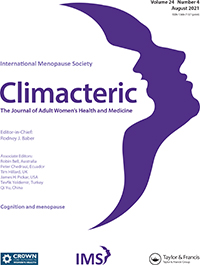
Improvement in HDL cholesterol in postmenopausal women supplemented with pumpkin seed oil: pilot study
2011 May 05 Climacteric Gossell-Williams M, Hyde C, Hunter T, Simms-Stewart D, Fletcher H, McGrowder D, et al.
Randomised Controlled Trial Postmenopausal Pumpkin Seed Oil HDL-C MenopausePumpkin seed oil supplementation may increase good cholesterol levels, lower diastolic blood pressure, and alleviate menopausal symptoms in postmenopausal women.
Study Protocols
Published study protocols are detailed plans that outline the objectives, methodology, statistical analyses, and organisation of a research study that have been made publicly available for others to review and use as a reference.
Presentation Slides

Randomised Controlled Trial
Changes in gut microbiome associated with a low-fat, vegan diet and cooked soybeans may reduce the frequency and severity of postmenopausal hot flashes.
Kahleova H, Holtz DN, Strom N, La Reau A, Kolipaka S, Schmidt N, Hata E, Znayenko-Miller T, Holubkov R, Barnard ND

Systematic Review
Pomegranate can significantly enhance women's health during and after menopause by reducing hot flashes severity and other menopause symptoms.
Moeini R, Shirafkan H, Gorji N

Review Article
Soybean intake can potentially reduce risks of several cancers, type 2 diabetes, osteoporosis, and hot flashes, and it may negatively impact some drug treatments and cause allergies.
Kang JH, Dong Z, Shin SH

Randomised Controlled Trial
A diet low in fat, vegan, and inclusive of daily cooked soybeans significantly reduces the frequency and severity of hot flashes in postmenopausal women.
Barnard ND, Kahleova H, Holtz DN, Znayenko-Miller T, Sutton M, Holubkov R, Zhao X, Galandi S, Setchell KDR

Systematic Review
Acupuncture's potential in reducing menopausal hot flush frequency compared to sham acupuncture, and its similarity in impacting hormone levels to hormone therapy.
Liu C, Wang Z, Guo T, Zhuang L, Gao X

Systematic Review
Isoflavones found in soybeans can reduce risks of certain cancers and alleviate menopause-related symptoms among women, such as vasomotor syndromes, spinal bone loss, and hypertension.
Chen LR, Chen KH

Review Article
Isoflavones, mainly found in soy-derived products, show beneficial effects on bone health, potential cancer risk reduction, and alleviation of menopausal symptoms, but not on cardiovascular risk.
Gómez-Zorita S, González-Arceo M, Fernández-Quintela A, Eseberri I, Trepiana J, Portillo MP

Randomised Controlled Trial
Supplementation with a kudzu flower and mandarin peel extract dose of 1150 mg/day seems to be an acceptable option for reducing hot flashes symptoms, as well as improving bone turnover, compared with the placebo group, during the menopausal transition.
Kim JE, Jeong H, Hur S, Lee J, Kwon O.

Systematic Review
Acupuncture significantly alleviated breast cancer treatment-related menopause symptoms for at least 3 months, but not hot flushes.
Chien TJ, Liu CY, Fang CJ, Kuo CY

Network Pharmacology
Guizhi Fuling Wan, a traditional herbal formula, can improve peripheral blood flow in menopausal hot flush sufferers, despite not changing the frequency or severity of the flushes.
Li , Hung , Li , Yang
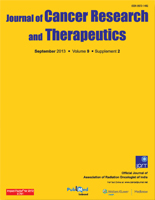
Systematic Review
Acupuncture appears to be a potentially effective treatment for reducing hot flashes in women diagnosed with breast cancer.
Chen YP, Liu T, Peng YY, Wang YP, Chen H, Fan YF, Zhang L

Randomised Controlled Trial
Bee pollen and honey may alleviate menopausal symptoms in breast cancer patients undergoing antihormonal treatment.
MÜNSTEDT KARSTEN, VOSS BENJAMIN, KULLMER UWE, SCHNEIDER URSULA, HÜBNER JUTTA
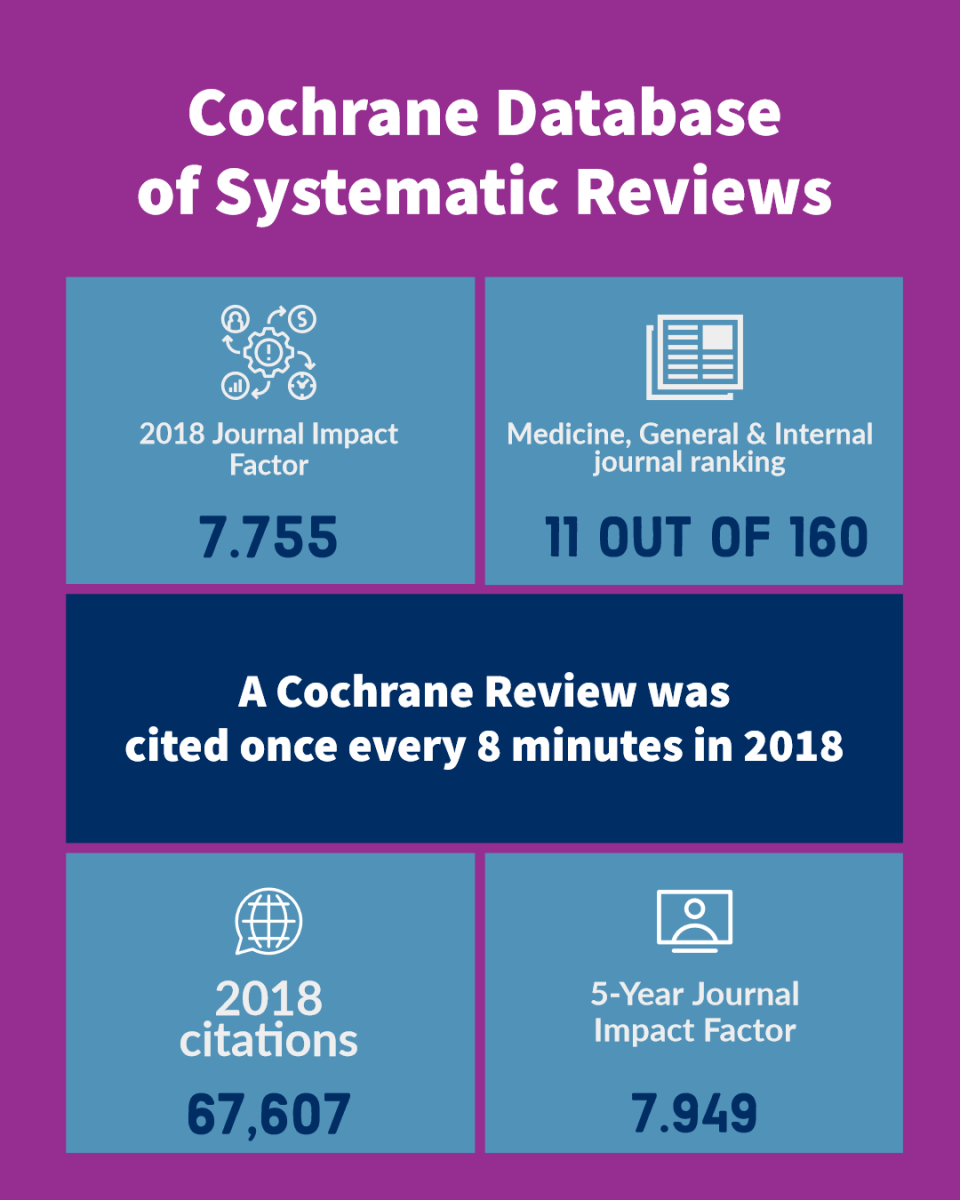
Systematic Review
When acupuncture was compared with no treatment, there appeared to be a benefit from acupuncture, but acupuncture appeared to be less effective than hormone therapy.
Dodin S, Blanchet C, Marc I, Ernst E, Wu T, Vaillancourt C, et al.
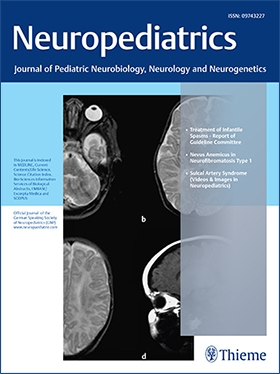
Clinical Study
Hop extract, particularly its component 8-Prenylnaringenin (8-PN), demonstrates potential in alleviating symptoms common in menopause such as osteoporosis, vasomotoric disturbances, and sexual motivation.
Keiler A, Zierau O, Kretzschmar G

Systematic Review
Soybean isoflavones, whether extracted or synthesized, prove significantly effective in reducing the frequency and severity of hot flashes in perimenopausal and postmenopausal women.
Taku K, Melby MK, Kronenberg F, Kurzer MS, Messina M
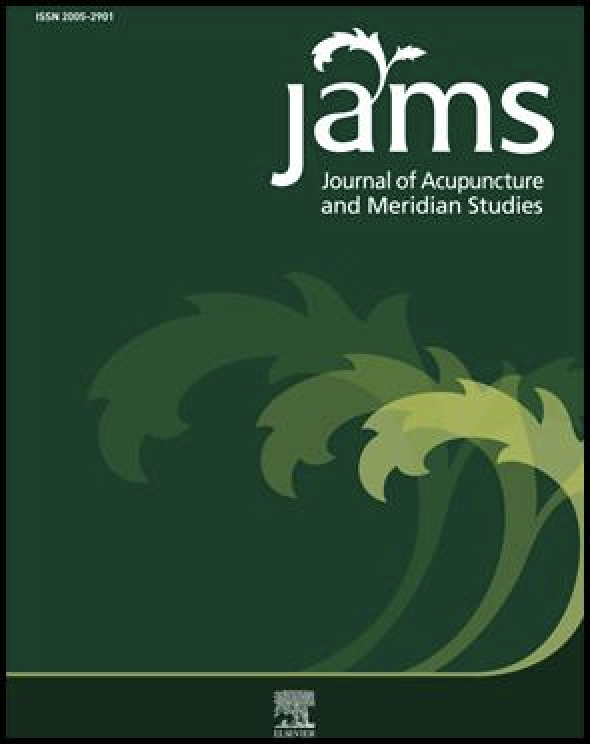
Cohort Study
Gui-zhi-fu-ling-wan, a traditional Chinese medicine, can effectively alleviate hot flashes in young patients in a safe manner.
Cho KH, Kim YS, Jung WS, Kim TH

Randomised Controlled Trial
Pumpkin seed oil supplementation may increase good cholesterol levels, lower diastolic blood pressure, and alleviate menopausal symptoms in postmenopausal women.
Gossell-Williams M, Hyde C, Hunter T, Simms-Stewart D, Fletcher H, McGrowder D, Walters CA
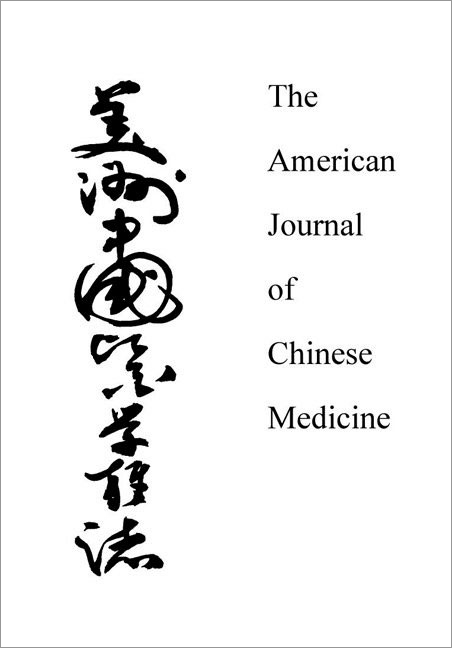
Randomised Controlled Trial
Gui-zhi-fu-ling-wan, a herbal therapy, depicts to be a viable alternative to hormone replacement therapy for treating hot flashes in post-menopausal women experiencing coldness in lower extremities.
Ushiroyama T, Ikeda A, Sakuma K, Ueki M
Executive Summary
Write an executive summary in the form of a blog article on the topic of "Research into Chinese medicine treatment for Hot Flushes" summarising the research below and using language that can be easily understood by patients and avoiding medical jargon using a professional and caring tone of voice.
Write an executive summary in the form of a blog article on the topic of "Researched Chinese medicine treatments for Hot Flushes" summarising the research below in an objective and easy to understand way, and using language that can be easily understood by patients. Group the article into Chinese medicine treatments first, followed by nutrition and other treatments. Avoid using medical jargon and use a professional and caring tone of voice.
Write me a concise but easy to understand executive summary on the topic of "Chinese medicine treatments for Hot Flushes" based on the following research that I will give you. Your summary should be 2 paragraphs long in Australian English spelling and include references to the studies.
A Randomised Controlled Trial published in 2023 in the journal Complementary Therapies in Medicine found that Changes in gut microbiome associated with a low-fat, vegan diet and cooked soybeans may reduce the frequency and severity of postmenopausal hot flashes. In this study, 84 postmenopausal women experiencing two or more moderate-to-severe hot flashes daily were randomly assigned to a low-fat, vegan diet with daily cooked soybeans or allowed to maintain their usual diet. Over a 12-week period, the frequency and severity of hot flashes were tracked using a mobile application. In 11 women from the group, gut microbiome was analyzed at the start and after 12 weeks of the dietary intervention, using deep shotgun metagenomic sequencing. The women who underwent gut microbiome testing experienced a substantial decrease in total hot flashes during the dietary intervention, and severe hot flashes disappeared entirely in this group. Alpha and beta diversity within the microbiome showed no significant difference in the intervention group between baseline and the end of the 12 weeks. Interestingly, adjustments in the relative abundance of certain bacterial strains, notably Porphyromonas and Prevotella corporis, were linked with the reduction in severe day hot flashes, while changes in the relative abundance of Clostridium asparagiforme were associated with a reduction in total severe hot flashes and severe night hot flashes.
A Systematic Review published in 2023 in the journal Phytotherapy Research found that Pomegranate can significantly enhance women's health during and after menopause by reducing hot flashes severity and other menopause symptoms. The study aimed at understanding the impacts of pomegranate on women's health through and following menopause. To gather data, a rigorous search was conducted on various academic platforms, including PubMed, Web of Science, Cochrane, Scopus, and Google Scholar, up to the end of 2022. All forms of clinical research studies, from randomized clinical trials to case series, were considered for review. The material was evaluated using the Cochrane RoB 2.0 tool specifically for quality assessment of randomized clinical trials. To quantify the effects of the pomegranate intervention, standardized mean differences were calculated using a random effect model. It was found that pomegranate significantly reduces the severity of hot flashes in menopausal women, improves their high-density lipoprotein levels, and reduces the Follicle-Stimulating Hormone (FSH). However, no significant improvement was noticed in the low-density lipoprotein, body mass index, and body weight. Despite these findings, the study recognized that the results' conclusiveness was hampered due to small sample sizes and the lack of study design elements such as blinding and randomization.
A Review Article published in 2023 in the journal Journal of Microbiology and Biotechnology found that Soybean intake can potentially reduce risks of several cancers, type 2 diabetes, osteoporosis, and hot flashes, and it may negatively impact some drug treatments and cause allergies. This research primarily involves review and analysis of current clinical studies focusing on the benefits and risks of soybean ingredients. The method appears to be a systematic review of various epidemiological studies which were investigating the correlation between soybean consumption and the risk of developing multiple types of cancers including breast, prostate, colorectal, ovarian, and lung cancers. Besides cancer, other common diseases such as type 2 diabetes, osteoporosis, and menopausal symptoms like hot flashes were also investigated. Moreover, any potential adverse effects of soybean, including its possible detrimental impact on certain drug treatments and its allergenicity, were also factors of study in these clinical evidences. In the discussion of results, the researchers found a significant inverse association between soybean intake and cancer risks, wherein an increase in the consumption of soybean foods was associated with a reduced likelihood of cancer. Besides showing potential anticancer properties, soybean consumption was found inversely correlated with risks of type 2 diabetes. Soy isoflavones, compounds present in soybeans, also showed potential benefits in the management of osteoporosis and hot flashes. On the other hand, the adverse effects of soybean, including interference with certain drug therapies and causing allergies, were also duly noted. Therefore, the research concludes that while soybean promises several significant health benefits, caution should be exercised for individuals under specific drug treatments or with allergies to soy.
A Randomised Controlled Trial published in 2022 in the journal Menopause found that A diet low in fat, vegan, and inclusive of daily cooked soybeans significantly reduces the frequency and severity of hot flashes in postmenopausal women. The methodology used involved the selection of 84 postmenopausal women who reported at least two moderate-to-severe hot flashes. These women were randomly divided into two cohorts, one prescribed the dietary intervention of a low-fat, vegan diet coupled with daily servings of cooked soybeans and a control group which did not alter their diet. Over a 12-week period, a mobile application was used to track hot flashes in terms of frequency and severity. Further, the participants’ vasomotor, psychosocial, physical, and sexual symptoms were assessed using the Menopause-Specific Quality of Life questionnaire. In some participants, the presence of urinary equol, a compound formed in the gut after consuming soy, was measured following the intake of the specified amount of soybeans for 3 days. In discussing the results, a remarkable decrease was noted in the frequency and severity of hot flashes experienced by the group assigned the dietary intervention versus those in the control group. In addition, after 12 weeks, half of the participants adhering to the vegan diet and daily soy intake reported complete cessation of moderate-to-severe hot flashes. Furthermore, notable decreases were reported in the intervention group in menopause-specific quality of life domains including vasomotor, physical, and sexual. Neither the season nor the participant's ability to produce equol played a notable role in these improvements.
A Systematic Review published in 2021 in the journal Acupuncture in Medicine found that Acupuncture's potential in reducing menopausal hot flush frequency compared to sham acupuncture, and its similarity in impacting hormone levels to hormone therapy. This study aimed to assess acupuncture's effectiveness and safety in treating menopausal hot flushes and its impact on hormone levels. Through meta-analyses of thirteen randomized controlled trials involving 1784 patients, it found that acupuncture reduced hot flush frequency compared to sham acupuncture, but didn't affect end scores of frequency or severity. Acupuncture demonstrated hormone level effects similar to hormone therapy. However, due to limited trial quality and quantity, further high-quality trials are necessary for definitive conclusions.
A Systematic Review published in 2021 in the journal International Journal of Molecular Sciences found that Isoflavones found in soybeans can reduce risks of certain cancers and alleviate menopause-related symptoms among women, such as vasomotor syndromes, spinal bone loss, and hypertension. The study overviewed soybeans' chemical composition and focused mainly on isoflavones. The research examined the processes of soybean preparation that includes cleaning, drying, crushing, and dehulling, and extraction methods to derive various soy products, particularly focusing on isoflavones - daidzein, genistein, and S-equol. Various soy products such as refined soy oil, soy lecithin, free fatty acids, glycerol, and soybean meal were discussed, along with the presence of the minor biological constituents in remaining components. The study explored the relationship between isoflavone consumption and disease prevention, particularly in relation to heart disease, cancer incidence—of the breast, bladder, and endometrial and colorectal—and menopause-related symptoms. The therapeutic effects of isoflavones were studied in the context of vasomotor syndromes, spinal bone loss, hypertension regulation, depressive symptoms during pregnancy, and in vitro glycemic control. In contrast, it failed to find definitive effects of isoflavones on cognition improvement and urogenital symptoms. The inconsistencies in defining the ingredients, doses, study durations, and outcomes of isoflavone studies proved challenging for the research.
A Review Article published in 2020 in the journal Nutrients found that Isoflavones, mainly found in soy-derived products, show beneficial effects on bone health, potential cancer risk reduction, and alleviation of menopausal symptoms, but not on cardiovascular risk. The study examined the potential uses of isoflavones, phenolic compounds mostly found in soy-derived foods and several vegetables. Isoflavones are seen as potential alternative therapies for hormone-dependent disorders due to their near-identical chemical structure to estradiol. These disorders include certain cancers, cardiovascular diseases, and menopausal symptoms. The investigation involved reviewing existing scientific evidence to evaluate the potential effects of isoflavones on these diseases and health concerns. In assessing the results, the review found evidence suggesting that isoflavones could have a beneficial effect on postmenopausal women's bone health, contributing to osteoporosis prevention and treatment. However, observed study results were not entirely conclusive due to discrepancies among study designs. Contrarily, there appeared to be no significant protective effect against cardiovascular risk with soy isoflavones. In terms of cancer, preliminary observations suggested that isoflavones may reduce some types of cancer risks, such as breast and endometrial cancer. Lastly, isoflavones showed a potential role in reducing hot flushes associated with menopause. Concerning safety, most common adverse effects were mild and observed at the gastrointestinal level.
A Randomised Controlled Trial published in 2020 in the journal Nutrients found that Supplementation with a kudzu flower and mandarin peel extract dose of 1150 mg/day seems to be an acceptable option for reducing hot flashes symptoms, as well as improving bone turnover, compared with the placebo group, during the menopausal transition. The results of this randomized controlled clinical trial involving 84 peri- and post-menopausal women with moderate hot flashes support the hypothesis that kudzu flower and mandarin peel extract might be an effective intervention for achieving reductions in HFs and improvements in bone turnover markers, as compared with the placebo.
A Systematic Review published in 2019 in the journal Climacteric found that Acupuncture significantly alleviated breast cancer treatment-related menopause symptoms for at least 3 months, but not hot flushes. In total, 943 patients from 13 RCTs were analyzed. The meta-analysis showed that acupuncture had no significant long-term maintenance effect on the frequency or severity of hot flushes, but had a significant 3-month maintenance effect of ameliorating menopause symptoms at 3 months after treatment ended. No adverse events were reported.
A Network Pharmacology published in 2019 in the journal Biomedicines found that Guizhi Fuling Wan, a traditional herbal formula, can improve peripheral blood flow in menopausal hot flush sufferers, despite not changing the frequency or severity of the flushes. The methodology used in this study involved a comprehensive literature search across 20 English and Chinese databases for relative clinical and experimental studies. From the nearly 13,000 studies identified, only 46 were evaluated as relevant and thus included in the review. These articles were comprised of seven clinical studies detailing Guizhi Fuling Wan's effects on menopausal hot flushes and 35 phytochemical analysis studies that identified the 169 chemical compounds in the herbal formula. Four experimental studies were also utilized to discover the potential therapeutic effects and target proteins/cytokines related to these hot flushes. The findings indicate that Guizhi Fuling Wan, despite exhibiting no significant impact on the frequency or severity of menopausal hot flushes, may have positive effects on peripheral blood flow. The blood flow improvements were specifically noted in the fingertips, jaw, and toes. Additionally, the analysis of the herbal formula revealed 169 distinct chemical compounds. Through experimental studies, potential therapeutic effects on target proteins/cytokines - including estrogen receptor beta with genetic variation, the calcitonin gene-related peptide receptor, and interleukin-8, were further highlighted. However, these therapeutic effects were inconsistent across different studies, which may be due to dosage differences and genotype variation.
A Systematic Review published in 2016 in the journal Journal of Cancer Research and Therapeutics found that Acupuncture appears to be a potentially effective treatment for reducing hot flashes in women diagnosed with breast cancer. In this systematic review, seven extensive databases including internationally recognized sources like PubMed, Web of Science, and Embase were searched without any language restrictions to identify relevant randomized controlled trials (RCTs) investigating the impacts of acupuncture on hot flashes in women with breast cancer. The timeframe of these searches spanned from the inception of each database to June 2015. The results of the 12 identified RCTs suggested an overall potential therapeutic effect of acupuncture on hot flashes in women with breast cancer. Notably, out of these, three studies highlighted a significant difference compared with control groups while one showed encouraging trends. Six studies suggested no notable difference between acupuncture and control treatments. A further two trials revealed negative results when compared to hormone therapy. A meta-analysis of the results also suggested differences in the number of hot flashes post-treatment and during subsequent follow-ups compared with control groups. In three trials, Kupperman index scores were reported, indicating a significant difference between acupuncture and controls after treatment and during follow-up. However, due to the overall relatively small number and inconsistent quality of the reviewed studies, these results should be interpreted with caution.
A Randomised Controlled Trial published in 2015 in the journal Molecular and Clinical Oncology found that Bee pollen and honey may alleviate menopausal symptoms in breast cancer patients undergoing antihormonal treatment. The study used a prospective, randomized crossover trial to compare the effects of a pollen-honey mixture with pure honey in alleviating menopausal symptoms in breast cancer patients undergoing antihormonal treatment. The patients' symptoms were measured using the Menopause Rating Scale. The results showed that a significant number of patients reported improvement in their menopausal symptoms while taking both honey and the pollen-honey mixture. Interestingly, honey, originally intended as a placebo, had similar effectiveness as the pollen in easing symptoms, with both exceeding the expected placebo effect. From these findings, the researchers concluded that bee pollen and honey could be potential aids in managing menopausal symptoms in breast cancer patients on antihormonal therapy.
A Systematic Review published in 2013 in the journal Cochrane Database of Systematic Reviews found that When acupuncture was compared with no treatment, there appeared to be a benefit from acupuncture, but acupuncture appeared to be less effective than hormone therapy. We found insufficient evidence to determine whether acupuncture is an effective treatment for controlling vasomotor menopausal symptoms. When we compared acupuncture with sham acupuncture, there was no evidence of any significant difference in their effect on menopausal vasomotor symptoms. When we compared acupuncture with no treatment there appeared to be a benefit from acupuncture, but acupuncture appeared to be less effective than hormone therapy (HT). These findings should be treated with great caution as the evidence was of low or very low quality and the studies comparing acupuncture versus no treatment or HT were not controlled with sham acupuncture or placebo HT. Data on adverse effects were lacking.
A Clinical Study published in 2013 in the journal Neuropediatrics found that Hop extract, particularly its component 8-Prenylnaringenin (8-PN), demonstrates potential in alleviating symptoms common in menopause such as osteoporosis, vasomotoric disturbances, and sexual motivation. The methodology of this research involved identifying the major constituents of hop extract, with a focus on 8-Prenylnaringenin (8-PN) due to its estrogenic qualities. Several in vivo studies were conducted to explore the potential of hop extract and 8-PN in mitigating climacteric symptoms. Clinical studies conducted have mainly centered around menopausal discomforts, still, these studies provided broad results. In the discussion of the results, it was found that hop extract, and more prominently, 8-PN, show promise in alleviating menopausal symptoms such as osteoporosis, vasomotoric issues, and sexual desire. Although 8-PN primarily activates the estrogen receptor α and presents only slight uterotrophic attributes, it also brings about estrogenic effects on the mammary gland. The results indicate potential application of 8-PN and hop extract in alleviating symptoms commonly associated with menopause.
A Systematic Review published in 2012 in the journal Menopause found that Soybean isoflavones, whether extracted or synthesized, prove significantly effective in reducing the frequency and severity of hot flashes in perimenopausal and postmenopausal women. The examination in this study began with a database search on PubMed and The Cochrane Controlled Clinical Trials Register for articles shedding light on double-blinded randomized controlled trials conducted until December 14, 2010. Additionally, the authors kept a keen eye out for other peer-reviewed articles containing potentially useful information. Any articles discovered were scrutinized for information on the effects of isoflavones on the frequency or severity of hot flashes in comparison to a placebo. 19 trials were found suitable for inclusion in a systematic review, while 17 of these made it to the meta-analysis stage. Among the 19 trials under review, data revealed that soybean isoflavones' ingestion, on a median of 54 mg for 6 weeks to 12 months, seemed to lead to a decrease in the frequency of hot flashes. A similar trend was discerned with hot flash severity, which reportedly reduced with isoflavone intake. Interestingly, it was found that isoflavone supplements with over 18.8 mg of genistein were more than twice as powerful in reducing hot flash frequency as supplements with a lower genistein count. These results, compiled over the course of the study, strongly suggest that soy isoflavone supplements are quite effective in mitigating the issue of hot flashes in perimenopausal and postmenopausal women.
A Cohort Study published in 2011 in the journal Journal of Acupuncture and Meridian Studies found that Gui-zhi-fu-ling-wan, a traditional Chinese medicine, can effectively alleviate hot flashes in young patients in a safe manner. For the methodology, this study was conducted retrospectively, examining the medical records of patients who visited the Department of Cardiovascular and Neurologic Disease, Kyung Hee Oriental Medical Center for hot flashes from between October 1, 2003, to October 1, 2008. Out of 60 cases reviewed, 37 were selected based on the inclusion criteria. The primary measure of improvement was assessed using the visual analog scale. In the discussion of results, it was noted that the mean improvement in symptoms was significant and a majority of patients experienced a 50% improvement. The secondary analysis revealed that the outcomes of differential diagnosis of cold and hot syndrome and blood stasis syndrome did not affect the scores. Importantly, only a trivial percentage of patients reported adverse events, indicating that Gui-zhi-fu-ling-wan may be a safe therapy for hot flashes.
A Randomised Controlled Trial published in 2011 in the journal Climacteric found that Pumpkin seed oil supplementation may increase good cholesterol levels, lower diastolic blood pressure, and alleviate menopausal symptoms in postmenopausal women. In this pilot study employing a randomized, double-blinded and placebo-controlled design, 35 women that were either naturally menopausal or had prematurely entered menopause due to benign surgical intervention partook. Over the span of 12 weeks, participants received either pumpkin seed oil or wheat germ oil (serving as the placebo) at a dosage of 2 grams daily. Measurements of serum lipids, fasting plasma glucose, blood pressure and completion of a questionnaire regarding menopausal symptoms were taken before and after the supplementation period, and changes across these factors were evaluated. Following supplementation, women who received pumpkin seed oil displayed increased concentrations of high density lipoprotein cholesterol (commonly known as good cholesterol) and a reduction in diastolic blood pressure. Additionally, there was a notable decline in the severity of menopausal symptoms, including hot flushes, headaches, and joint pain, thanks to this supplementation. Contrarily, symptoms of depression and feelings of being unloved heightened among women in the group that received wheat germ oil.
A Randomised Controlled Trial published in 2005 in the journal The American Journal of Chinese Medicine found that Gui-zhi-fu-ling-wan, a herbal therapy, depicts to be a viable alternative to hormone replacement therapy for treating hot flashes in post-menopausal women experiencing coldness in lower extremities. In this study, an examination of the connection between extremities' blood flow and hot flashes was conducted among 352 post-menopausal women aged between 46 and 58 who were showing climacteric complaints. 131 of these women, who were experiencing hot flashes, were treated either with HRT or Gui-zhi-fu-ling-wan, a type of herbal therapy. This investigation measured blood flow under the jaw, in the middle finger, and the third toe using laser doppler fluxmetry. Subsequent to the therapies, there was a notable decrease in the heightened blood flow under the jaw that is associated with hot flashes. However, the herbal therapy, Gui-zhi-fu-ling-wan, interestingly, increased blood flow in the lower extremities while the hormone replacement therapy did not. This suggests that Gui-zhi-fu-ling-wan does not uniformly affect the activity of the vasodilator neuropeptides on the sensory neurons of systemic peripheral vessels, thereby proving more effective in treating hot flashes accompanied with cold lower extremities.
Moderation Tools
Topic
Sign In
Users not signed in are limited to viewing the 5 most recent items of content.